Transgender women banned from female athletics events
Lord Sebastian Coe, called it decisive action to protect females as World Athletics fell in line with swimming to ban transgender athletes from elite competition.
Olympics
Don't miss out on the headlines from Olympics. Followed categories will be added to My News.
Lord Sebastian Coe called it decisive action to protect the female category in athletics.
Even though transgender athletes aren’t an issue in track and field at the elite level at the moment, the sport’s governing body has fallen in line with swimming who led the way by implementing a ban nine months ago.
They did have immediate problems with an American transwimmer Lia Thomas declaring a desire to swim at the Olympic trials in 2024.
Coe, the World Athletics president, said there had been consultation with stakeholders including the International Olympic Committee and national federations about the issue of transgender athletes.
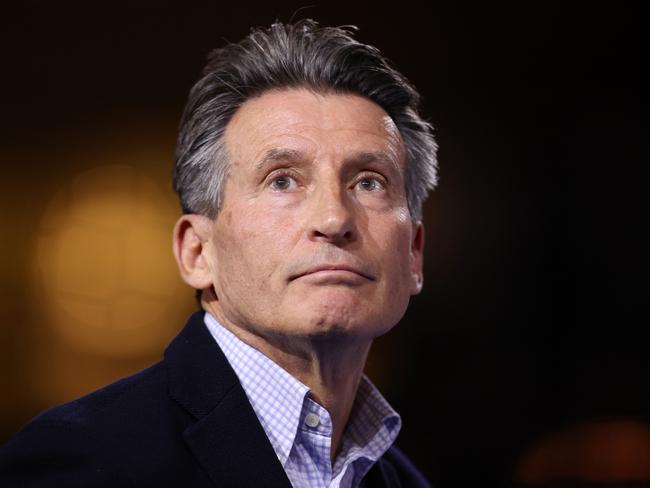
“The majority of those consulted stated that transgender athletes should not be competing in the female category,” he said.
“The judgement we took . . . was, I believe, in the best interests of our sport.
“We’re not saying ‘no’ forever,” he said, adding that a working group headed by a transgender person would be created to further monitor scientific developments.
The vote, which passed with a 71 percent of national federations in favour, declared transgender athletes who have transitioned from male to female after going through puberty won’t be allowed to compete.
World Athletics also announced that Russian athletes will remain barred from track and field “for the foreseeable future” because of the country’s invasion of Ukraine.
What had become the more pressing issue for athletics was the situation with DSD athletes - they have male chromosomes and internal testes but have been raised as girls since birth - who had been competing regularly, and winning, at an elite level for some time.
These include two-time Olympic 800m champion Caster Semenya with the council voting to tighten restrictions on them, cutting the maximum amount of plasma testosterone for athletes in half, to 2.5 nanomoles per litre from five.
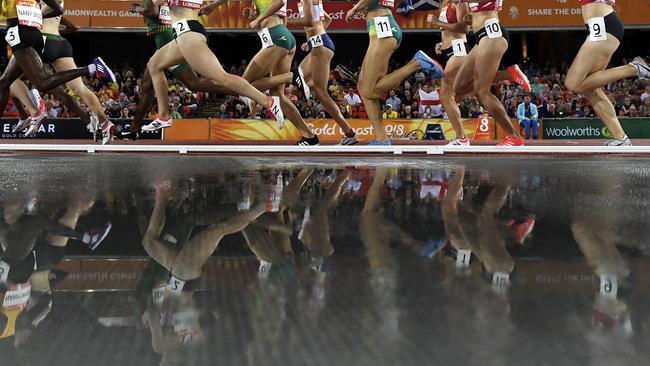
They had previously tried to restrict the range of events the DSD athletes could compete in, barring them from running in races from 400m up to 1500m.
Semenya had been trying to compete in longer events - she finished 13th in the heats of the 5000m at last year’s world championships.
To compete at next year’s Paris Olympics, she would have to undergo hormone-suppressing treatment for six months, something she has said she will never do again, having undergone the treatment a decade ago under previous rules.
While Semenya is one of the sport’s greats, the tightening isn’t about her given she is in the twilight of her career. There are 12 other DSD athletes competing at the elite level and they had shown in recent times the restriction of events was no longer an issue.
Eyebrows were raised when Burundian Francine Niyonsaba - who finished runner-up to Semenya in the 800m at the 2016 Rio Olympics - won the 2021 Diamond League 5000m final while there was again uneasiness when Christine Mboma claimed the silver medal in the 200m at the Tokyo Olympics.
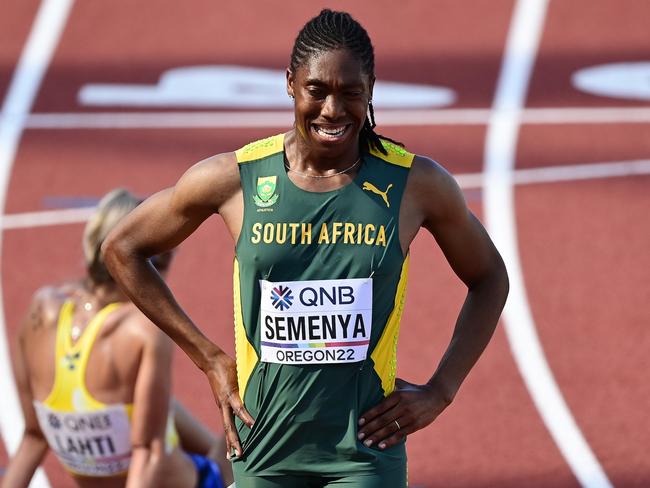
These were the results which were making the world governing body nervous. Now with the tightening of DSD restrictions - they have to reduce their testosterone levels below 2.5 for at least six months to be able to compete intentionally - means it’s most unlikely they will feature in Paris.
The move has been welcomed in Australia with leading middle-distance coach Nic Bideau saying it was unfair for other female competitors at the elite level.
“No-one has a problem at the recreational level, no-one understandably complains there but when you’re competing for money and international prestige it is not fair,” he said.
“It is clear watching some of these races that some athletes have a massive physical advantage.”
Having a level playing field in athletics has always been the sport’s greatest challenge given the litany of drug scandals throughout its history.
And while that is still very much an on-going battle, the banning of transgender athletes is a significant step in the right direction.
Trans ban: Global ruling ‘to protect female sport’
Transgender women will no longer be allowed to compete in female track and field events regardless of their levels of testosterone, World Athletics president Sebastian Coe said, citing fairness over inclusion.
Coe said no female transgender athlete who had gone through male puberty would be permitted to compete in female world ranking competitions from March 31.
Speaking after a meeting of the global track and field federation’s decision-making body, Coe said World Athletics had consulted with stakeholders including 40 national federations, the International Olympic Committee and trans groups about the issue of transgender athletes.
“The majority of those consulted stated that transgender athletes should not be competing in the female category,” he said.
“Many believe there is insufficient evidence that trans women do not retain advantage over biological women and want more evidence that any physical advantages have been ameliorated before they are willing to consider an option for inclusion into the female category.”
He added: “The judgement we took ... was, I believe, in the best interests of our sport.
He said a working group headed by a transgender person would be created to further monitor scientific developments.
“We’re not saying ‘no’ forever,” Coe said.
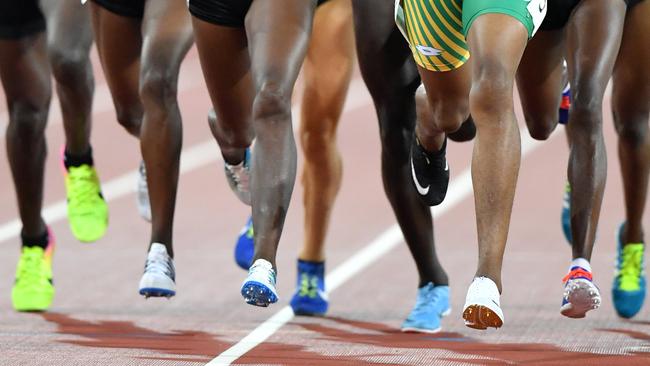
“Decisions are always difficult when they involve conflicting needs and rights between different groups, but we continue to take the view that we must maintain fairness for female athletes above all other considerations.
“We will be guided in this by the science around physical performance and male advantage which will inevitably develop over the coming years. As more evidence becomes available, we will review our position, but we believe the integrity of the female category in athletics is paramount.”
In a statement, World Athletics said it became apparent that there “little support within the sport” for an option that was presented to stakeholders, which required transgender athletes to maintain their testosterone levels below 2.5nmol/L (nanomoles per litre of blood) for 24 months to be eligible to compete internationally in the female category.
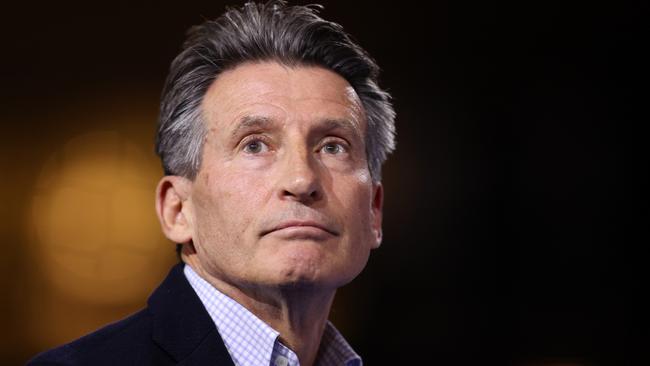
“There are currently no transgender athletes competing internationally in athletics and consequently no athletics-specific evidence of the impact these athletes would have on the fairness of female competition in athletics.
“In these circumstances, the Council decided to prioritise fairness and the integrity of the female competition before inclusion.”
World Athletics also amended regulations covering athletes classified as DSD, in other words having “differences of sexual development”.
The most high-profile DSD athlete is double Olympic 800m champion Caster Semenya of South Africa.
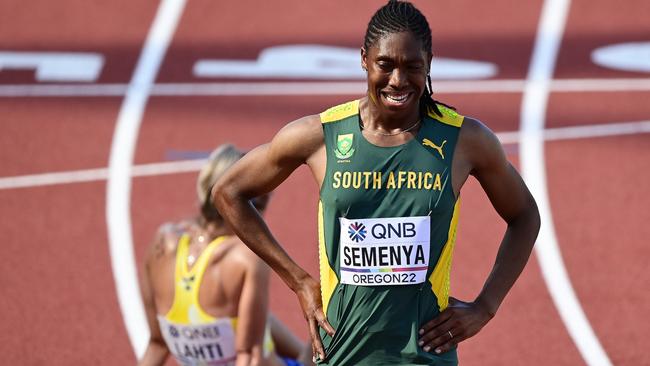
Under the new regulations, in order to compete in the female category, DSD athletes will have to reduce their amount of blood testosterone to below 2.5 nanomoles per litre, down from the current level of five, and remain below this threshold for two years, rather than just one, as is the case now.
World Athletics also removed the principle of restricted events for DSD athletes, meaning regulations now cover all events rather than the previously monitored ones, which were from 400m to one mile.
Thank you @sebcoe & @WorldAthletics for standing up for female athletes across the world who are worthy of fair sport ðŸ˜ðŸ‘ðŸ»
— Sharron Davies MBE (@sharrond62) March 23, 2023
Originally published as Transgender women banned from female athletics events



